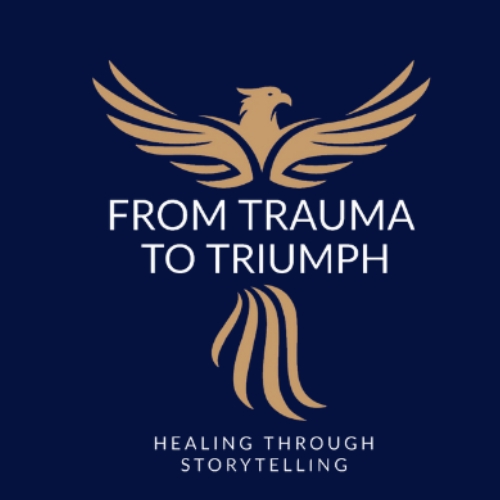Imagine waking up every morning feeling refreshed, energized, and mentally sharp. Sounds like a dream, right? But what if science and the latest worldupdates could show you that achieving this is not only possible but essential for your overall health? In today’s fast-paced world, many of us sacrifice sleep for work, social activities, or entertainment, unaware of the long-term consequences on our mind and body. The science of sleep and recent world updates have revealed groundbreaking insights into how proper rest can dramatically improve your health, boost immunity, enhance mental clarity, and even lengthen lifespan.
If you’ve ever struggled with fatigue, stress, or mood swings, understanding sleep science could be the game-changer you need. With the latest worldupdates on sleep research, this comprehensive guide will explore why sleep is not just a passive state but a cornerstone of health. By the end, you’ll know exactly how to leverage sleep to transform your life.
The Science of Sleep: Why It Matters
Sleep is often misunderstood as a period of inactivity, but it’s far from that. During sleep, your body and brain undergo essential processes that are vital for survival. Modern sleep science divides sleep into two main categories:
-
Non-REM Sleep: This includes stages 1-3, where your body repairs tissues, strengthens the immune system, and consolidates memories.
-
REM Sleep: This is where dreaming occurs, and your brain processes emotions, creativity, and learning.
Without adequate sleep, these processes are disrupted, leading to a cascade of negative effects on physical and mental health.
How Sleep Affects Physical Health
Sleep is a cornerstone of physical wellness. Research has shown that consistent sleep deprivation can lead to:
-
Weakened immune system
-
Increased risk of heart disease
-
Poor metabolic function and obesity
-
Slower recovery from illness and injury
By understanding these mechanisms, we can begin to appreciate why prioritizing sleep is as important as diet or exercise.
Sleep and Mental Health: A Vital Connection
Your brain is not just resting while you sleep; it’s actively organizing and rejuvenating itself. Here’s how:
Memory Consolidation
During sleep, particularly in the REM stage, your brain converts short-term memories into long-term ones. This is essential for learning new skills, recalling information, and enhancing creativity.
Emotional Regulation
Lack of sleep negatively impacts emotional stability. Studies have shown that insufficient sleep increases irritability, anxiety, and depression. Adequate rest, on the other hand, enhances emotional resilience, allowing you to cope better with daily stressors.
Cognitive Performance
Sleep deprivation reduces attention, problem-solving ability, and decision-making skills. By embracing proper sleep habits, you can significantly boost productivity and mental clarity.
The Hidden Benefits of Sleep You Didn’t Know About
Many people underestimate the full range of benefits that sleep offers. Beyond feeling rested, here are some scientifically proven advantages:
Weight Management
Sleep regulates hormones like ghrelin and leptin, which control hunger and fullness. Poor sleep disrupts this balance, leading to overeating and weight gain.
Heart Health
Sleep helps maintain blood pressure and reduces inflammation, lowering the risk of heart disease and stroke.
Longevity
Research indicates that people who consistently sleep 7-9 hours per night tend to live longer, healthier lives.
Mental Sharpness
Adequate sleep improves focus, learning, creativity, and problem-solving skills. It essentially recharges your brain for optimal performance.
Common Sleep Disorders and How to Combat Them
Even with the best intentions, many people struggle with sleep. Understanding common sleep disorders can help you take actionable steps to improve your rest.
Insomnia
Characterized by difficulty falling or staying asleep, insomnia affects millions worldwide. Solutions include establishing a consistent bedtime routine, reducing screen time, and managing stress.
Sleep Apnea
This disorder involves interrupted breathing during sleep and can lead to heart problems, fatigue, and poor concentration. Medical interventions like CPAP machines or lifestyle changes can help.
Restless Leg Syndrome
A neurological disorder causing an uncontrollable urge to move the legs, especially at night. Treatment often includes medications and lifestyle adjustments.
How to Harness Sleep Science for Better Health
Here are practical strategies rooted in sleep science to maximize your health benefits:
Maintain a Sleep Schedule
Go to bed and wake up at the same time every day, even on weekends. Your body thrives on routine.
Optimize Your Sleep Environment
-
Keep your bedroom dark, quiet, and cool
-
Invest in a comfortable mattress and pillows
-
Limit exposure to screens before bed
Mind Your Diet and Exercise
Avoid heavy meals, caffeine, and alcohol close to bedtime. Regular exercise can improve sleep quality but avoid vigorous activity late at night.
Manage Stress
Techniques like meditation, deep breathing, and journaling can help calm your mind for better sleep.
Technology and Sleep: Friend or Foe?
Modern technology has transformed our lives, but it can negatively impact sleep if not used wisely. Blue light from screens suppresses melatonin, a hormone that regulates sleep.
-
Use night mode or blue-light filters
-
Avoid smartphones and computers at least an hour before bed
-
Consider sleep-tracking devices to understand your patterns
Interestingly, recent world updates in sleep technology have shown that wearable devices and smart apps can actually enhance sleep quality by providing personalized recommendations.
The Role of Circadian Rhythms
Your circadian rhythm, often called your “internal clock,” regulates your sleep-wake cycle. Disruption of this rhythm through irregular schedules, jet lag, or shift work can significantly impair health.
Tips to support circadian rhythm:
-
Expose yourself to natural sunlight during the day
-
Keep a consistent sleep schedule
-
Avoid bright lights in the evening
Understanding and respecting your body’s natural rhythms is a critical step in improving overall health.
Sleep and Immune Function: How Rest Protects You
One of the most fascinating discoveries in sleep science is the link between sleep and immunity. During deep sleep, the body produces cytokines, proteins that help fight infection and inflammation. Chronic sleep deprivation reduces these protective mechanisms, leaving you more susceptible to illness.
Recent worldupdates have highlighted that sufficient sleep can even improve vaccine effectiveness, emphasizing its role in overall health resilience.
Sleep and Hormonal Health
Sleep is intricately linked with hormone regulation. For example:
-
Growth hormone, essential for tissue repair and muscle growth, is released primarily during deep sleep
-
Cortisol, the stress hormone, is balanced by proper sleep, reducing anxiety and promoting calm
-
Sex hormones like testosterone and estrogen are also regulated by sleep, influencing fertility and sexual health
The science is clear: adequate sleep is essential for hormonal harmony and overall wellness.
The Connection Between Sleep and Brain Detoxification
During sleep, the brain activates the glymphatic system, which clears toxins and metabolic waste accumulated during the day. This process is vital for preventing neurodegenerative diseases like Alzheimer’s.
Regular, high-quality sleep is not just restorative; it’s protective. Missing sleep is akin to skipping a critical maintenance routine for your brain.
Sleep Science in Everyday Life
Integrating sleep science into your daily life doesn’t require a complete lifestyle overhaul. Here are actionable steps:
-
Prioritize sleep as much as exercise or diet
-
Create a bedtime ritual to signal your brain it’s time to rest
-
Track your sleep patterns using apps or journals
-
Limit stimulants like caffeine and nicotine before bed
-
Exercise regularly, but not immediately before sleep
Even small, consistent adjustments can lead to remarkable improvements in health, energy, and productivity.
Myths About Sleep Debunked
Sleep science has also dispelled several common myths:
-
Myth: “I can catch up on sleep on weekends.”
Truth: Inconsistent sleep schedules disrupt circadian rhythms. -
Myth: “Older adults need less sleep.”
Truth: The need for sleep remains constant; older adults may experience more fragmented sleep. -
Myth: “Alcohol helps me sleep.”
Truth: Alcohol reduces sleep quality and disrupts REM sleep.
By understanding these myths, you can make informed choices for better rest.
The Future of Sleep Science
The field of sleep research is rapidly evolving. Cutting-edge world updates show exciting developments such as:
-
Personalized sleep medicine
-
Wearable technology that predicts sleep disorders
-
Genetic insights into sleep needs and patterns
As science advances, our ability to optimize sleep and, consequently, health will only improve.
Conclusion
Sleep is far more than a nightly routine; it is a vital pillar of health. From strengthening the immune system and regulating hormones to enhancing memory, emotional stability, and brain detoxification, the benefits are profound. By understanding sleep science and integrating its principles into daily life, you can unlock your body’s full potential.
Prioritizing sleep is not a luxury—it is essential. With the insights from the latest worldupdates, you can take control of your health, boost productivity, and live a longer, more fulfilling life. Start tonight, respect your sleep, and watch as your body and mind transform.


